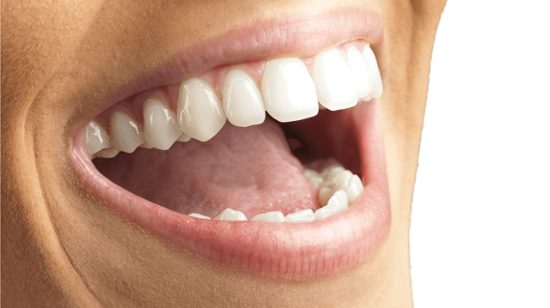In the confines of your mouth, a battle rages on, where bacteria, extreme temperatures and other elements clash in a constant struggle.
Welcome to the hostile environment within the oral cavity, where a delicate balance must be maintained for good oral health and well-being.
In this issue, we will discuss the unique and competitive balance between bacteria and the extreme conditions in the oral environment.
First and foremost, the oral bacteria is a bustling community, some beneficial and necessary and others harmful and unnecessary, all trying to coexist. These microorganisms engage in a relentless competition for resources and territory.
One of the bad bugs, Streptococcus mutans, is a notorious offender responsible for tooth decay. It thrives on the sugars from our diets, producing acidic byproducts that erode tooth enamel, leaving teeth vulnerable to cavities. This naturally occurring bacterium in the mouth is just waiting for an opportunity to strike.
Conversely, some beneficial bacteria, like Streptococcus salivarius and Lactobacillus contribute to the maintenance of a balanced bacterial combination. Their presence contributes to lubrication, digestion, bacterial suppression and generally an optimal environment.
The oral cavity experiences extreme temperature changes. For example, we consume hot and cold substances resulting in thermal stress, affecting fillings and other metals, teeth and gums. Conversely, with ice-cold treats or exposure to frigid air can lead to tooth sensitivity. The constant expansion and contraction of dental tissues and dental materials under temperature fluctuations create microfractures, providing entry points for bacteria to infiltrate.
Forces, also play a role in the ongoing war within the mouth. The act of chewing subjects the teeth to heavyforces, and bad bites or grinding can escalate this pressure. Persistent grinding, known as bruxism, not only wears down enamel but also exposes teeth to increased vulnerability. This heightened pressure can lead to cracks, fractures, and, in severe cases, the need for extensive dental interventions.
The oral cavity is constantly inundated with moisture. Saliva, often an unsung hero, acts as a natural defense mechanism. It contains enzymes that neutralize acids, minerals that remineralize teeth, and antimicrobial agents that combat bacterial invaders. Saliva also aids in speaking, chewing, swallowing and digestion.
However, when factors such as dehydration, medications, or certain medical conditions reduce saliva production, the balance tilts in favor of the hostile elements, increasing the risk of dental problems.
Habits like smoking introduce harmful chemicals that can compromise the integrity of teeth and gums, creating an environment conducive to bacterial growth. Additionally, poor oral hygiene practices provide a fertile ground for the hostile forces to flourish. Neglecting regular brushing, flossing, and dental check-ups opens the door for plaque accumulation, setting the stage for inflammation, infection, and decay.
In this complex ecosystem, dental professionals play a crucial role as gate keepers. Regular dental check-ups and cleanings are essential for monitoring the battlefield within the mouth. Educating individuals about proper oral hygiene practices empowers our patients to take an active role in maintaining a harmonious balance in their oral environment.
Understanding this hostile environment is pivotal for preserving oral health. By embracing good oral hygiene practices and seeking professional guidance, individuals can tip the scales in favor of a healthier and more balanced oral ecosystem.
After all, a healthy mouth is not just a testament to good oral hygiene; it’s a victory in the ongoing war within.
Dr. Kendal V. O. Major is Founder and CEO of Center for Specialized Dentistry which is a comprehensive family dental practice operating in Nassau. He is the first Bahamian Specialist in gum diseases and dental implants since 1989. He also is a certified Fast braces provider. His practice is located at 89 Collins Avenue, Nassau at (242)325-5165 or [email protected].






